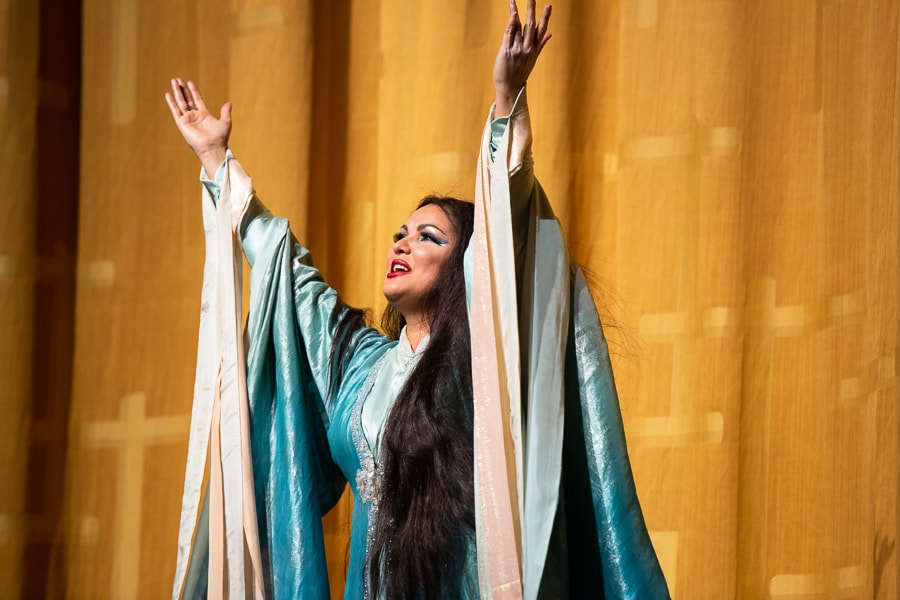
Superstar Soprano Anna Netrebko seeks distance from Putin after losing work
Since the war started, Netrebko's performances at the Metropolitan Opera—where she has sung for 20 years—have been canceled indefinitely. Other leading opera houses, including in Munich and in Zurich, also scrapped upcoming performances thanks to her past support of the Russian President
 Anna Netrebko takes a bow after performing at the Metropolitan Opera in New York, Dec. 31, 2019. The superstar soprano, whose past support of the Russian president Vladimir Putin cost her many engagements after the invasion of Ukraine, said in a statement that she was not “allied with any leader of Russia.”
Anna Netrebko takes a bow after performing at the Metropolitan Opera in New York, Dec. 31, 2019. The superstar soprano, whose past support of the Russian president Vladimir Putin cost her many engagements after the invasion of Ukraine, said in a statement that she was not “allied with any leader of Russia.”
Image: Caitlin Ochs/The New York Times
Anna Netrebko, a Russian diva whose international career recently fell apart because of her past support of President Vladimir Putin of Russia, sought to distance herself from him Wednesday, saying they had only met a few times.
Since the war started, Netrebko’s performances at the Metropolitan Opera — where she has sung for 20 years, becoming its reigning prima donna — have been canceled indefinitely.
Other leading opera houses, including in Munich and in Zurich, also scrapped upcoming performances. On Wednesday, in what seemed an attempt at orchestrating a comeback, Netrebko issued a statement distancing herself from Putin in the wake of the Russian invasion of Ukraine.
“I am not a member of any political party nor am I allied with any leader of Russia,” Netrebko said in the statement, which was posted on social media.
©2019 New York Times News Service







